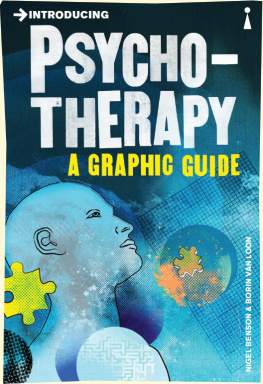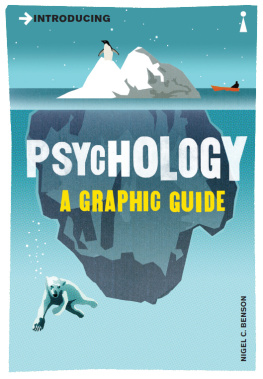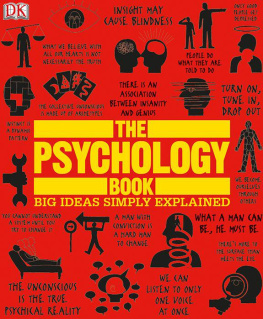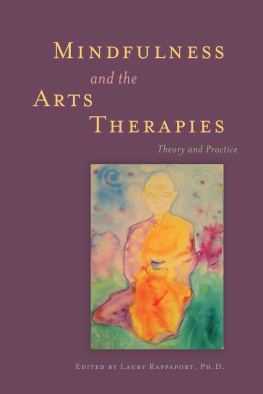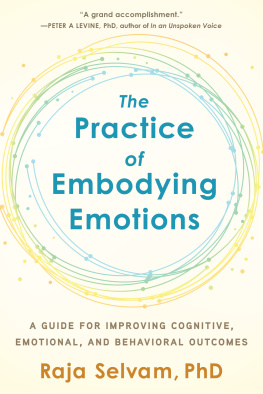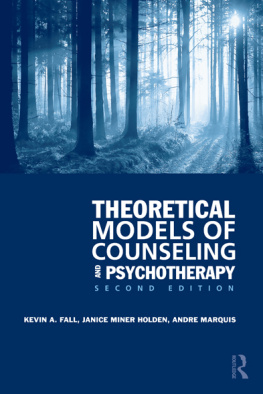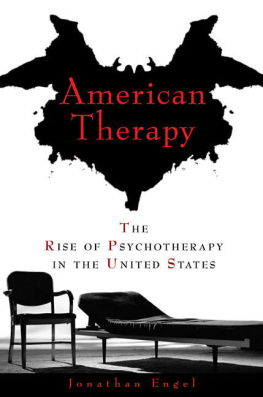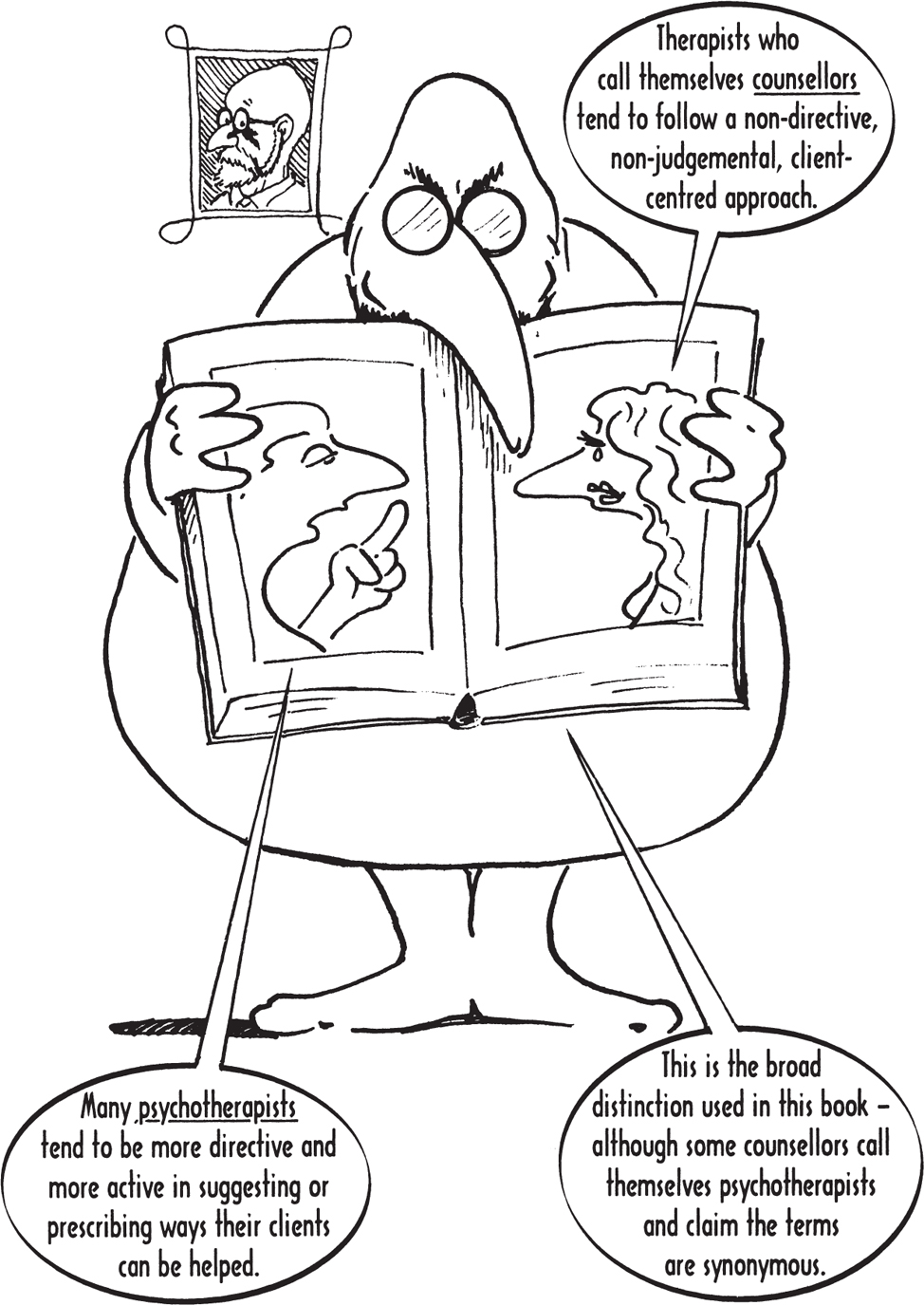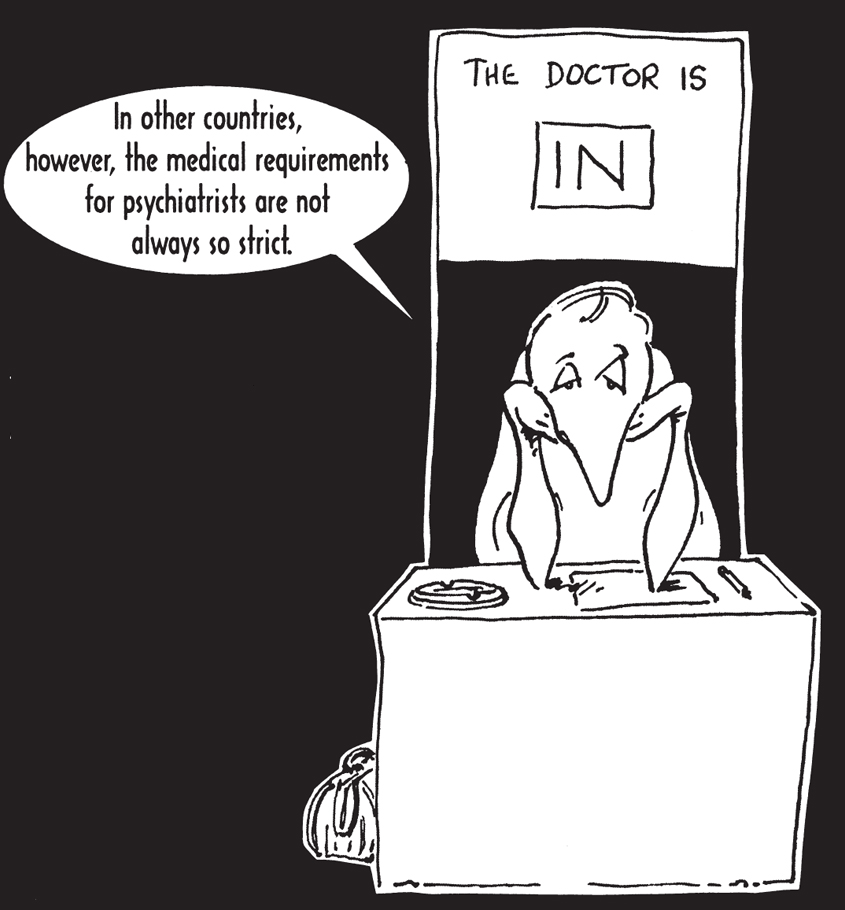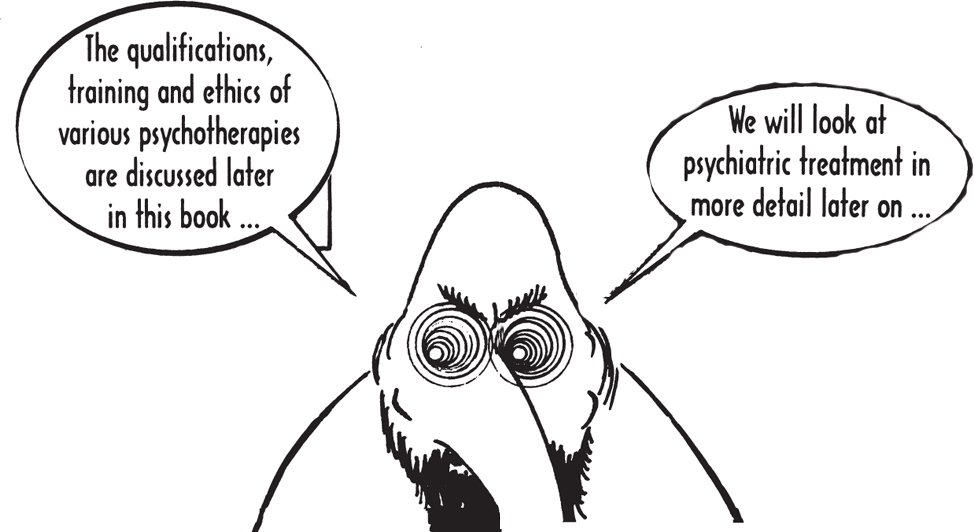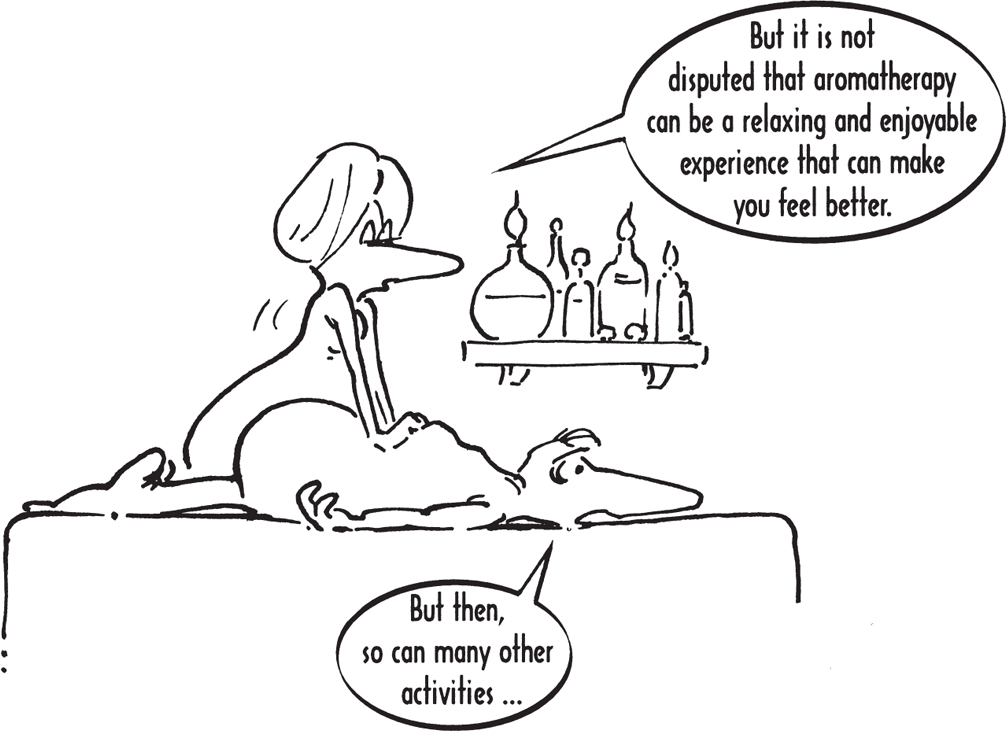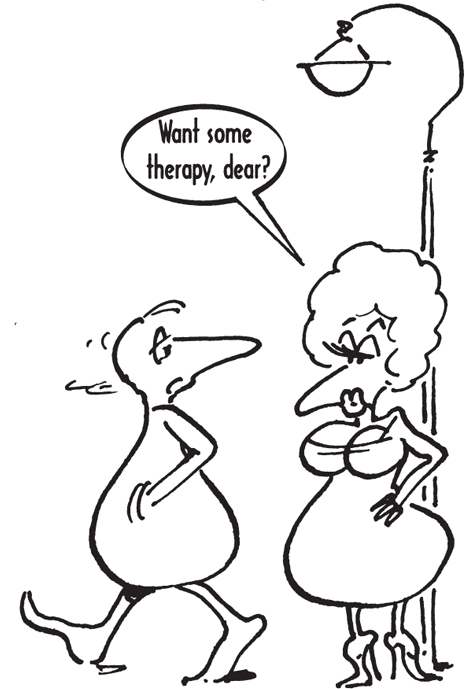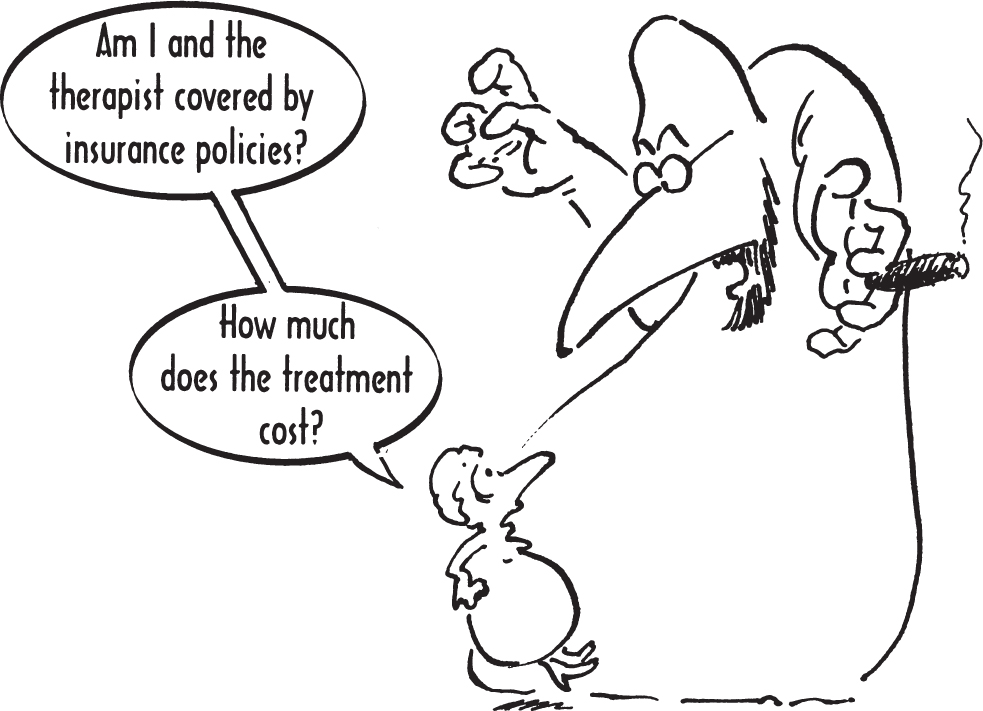Contents
(or Self-Instruction Training)
Published by Icon Books Ltd, Omnibus Business Centre, 3941 North Road, London N7 9DP
Email:
www.introducingbooks.com
ISBN: 978-184831-344-6
Text copyright 2012 Icon Books Ltd
Illustrations copyright 2012 Icon Books Ltd
The author and illustrator has asserted their moral rights
Originating editor: Richard Appignanesi
No part of this book may be reproduced in any form, or by any means, without prior permission in writing from the publisher.
A Problem Old as Humanity...
Hes not well. But we cant find anything wrong with him!
He appears fit and healthy. But hes behaving oddly.
What shall we do? He needs psychotherapy!
Someone will have to invent it ...
Who says?
What is Psychotherapy?
Literally, psychotherapy means mind-healing. In practice it is the treatment of disorders by using psychological methods - in addition to, or instead of, purely medical procedures. But there is often little agreement about exactly what those methods include. Indeed, many disagree about how the term itself should be used.
Psychotherapy is anything that heals ...
Or makes you feel better ...
But isnt psychotherapy just another word for counselling?
No! Counselling is just one type of psychotherapy ...
and there are others ...
Psychotherapy and Counselling
Psychotherapy really began with Sigmund Freuds psychoanalysis in 1894. But since the mid-20th century there have been other approaches. Today the term psychotherapy includes many different forms of help given by trained professionals to individuals or groups of people.
Therapists who call themselves counsellors tend to follow a non-directive, non-judgemental, client-centred approach. Many psychotherapists tend to be more directive and more active in suggesting or prescribing ways their clients can be helped. This is the broad distinction used in this book although some counsellors call themselves psychotherapists and claim the terms are synonymous.
Main types of Psychotherapy
When a person needs help, the first step is usually to consult a medical doctor who will attempt diagnosis and medical therapy. If that is not effective, then various psychotherapeutic approaches can be considered. There are today several hundred psychotherapies available! But, for convenience, the therapies in this book will be divided into seven main groups. The first is medical or somatic therapy literally body therapy, mainly using drugs.
The basic assumption in somatic therapy is that there is a chemical imbalance causing the problem. Here, take one of these every night youll soon feel better!
The other six are non-medical therapies.
Most counsellors are trained mainly in humanistic therapy, but often use cognitive and behavioural techniques too.
Who is a Psychotherapist?
A major problem is that simply anyone can call him or herself a therapist or psychotherapist! Even those claiming to possess qualifications need very careful scrutiny. Professional bodies exist to recognize training and regulate members conduct.
Psychologists who are qualified psychotherapists should have a university degree in psychology and specialist training. Similarly, trained counsellors should normally be members of a professional counselling body. The qualifications, training and ethics of various psychotherapies are discussed later in this book ...
Who is a Psychiatrist?
Psychiatrists are qualified medical doctors (MDs) who have further specialized training in psychiatric approaches, such as those based on psychoanalysis. In Britain, psychiatrists must be medically qualified and are thereby subject to the rules of the British Medical Association (BMA).
In other countries, however, the medical requirements for psychiatrists are not always so strict.
The USA has the American Psychiatric Association, the American Psychological Association and the American Psychological Society.
We will look at psychiatric treatment in more detail later on ...
Other Therapists
In addition to psychiatrists, psychologists and counsellors, there are many others who call themselves therapists. For example, people with certificates in aromatherapy - the application of pleasant-smelling substances, often by massage (in fact, one of their journals is simply called Therapist). But this is controversial, especially in view of the non-scientific nature of the theories and claims of aromatherapy.
But it is not disputed that aromatherapy can be a relaxing and enjoyable experience that can make you feel better. But then, so can many other activities ...
Want some therapy, dear?
How to choose a Therapist
Your medical general practitioner may be able to recommend certain therapists - for example, those offering psychoanalysis, cognitive-behaviour therapy, osteopathy, chiropractic or acupuncture treatments. Recommendations from clients of therapists are also valuable. But there are other things to check.
Is the therapist professionally qualified? if so, what exactly are the qualifications?
How experienced is the therapist?
Is the therapist willing to co-operate with your doctor?
Does the therapist belong to a recognized professional association, with publicly available register, that you can contact through an address or phone number?
Does the relevant professional association have published codes of practice (ethics), complaints and disciplinary system?

